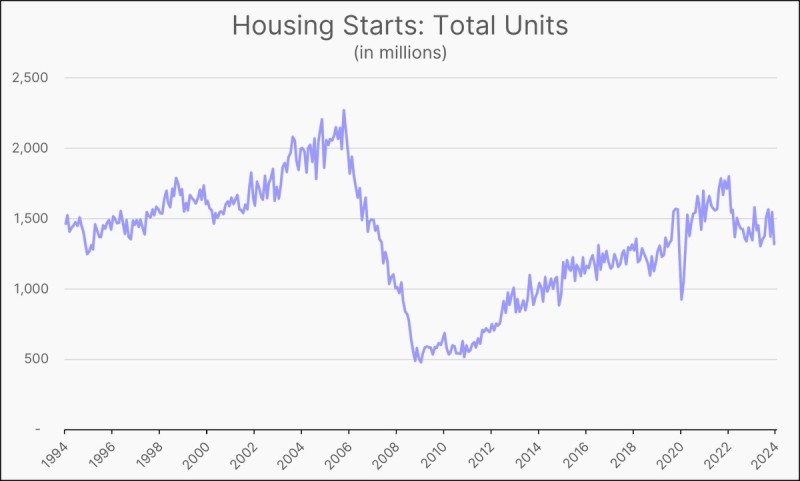Advertisement
Young Homebuyers See Homeownership as Long-Term Investment

Young homebuyers remain optimistic and see their home as a good investment, while older buyers are more likely to trade down to a smaller property to match changing lifestyles, according to the 2014 National Association of Realtors Home Buyer and Seller Generational Trends study, which evaluates the generational differences of recent home buyers and sellers.
Eight out of 10 recent buyers considered their home purchase a good financial investment, ranging from 87 percent for buyers age 33 and younger, to 74 percent for buyers 68 and older.
Lawrence Yun, NAR chief economist, said the Millennial generation, which is under the age of 34, is now entering the peak period in which people typically buy a first home. “Given that Millennials are the largest generation in history after the baby boomers, it means there is a potential for strong underlying demand. Moreover, their aspiration and the long-term investment aspect to owning a home remain solid among young people,” he said. “However, the challenges of tight credit, limited inventory, eroding affordability and high debt loads have limited the capacity of young people to own.”
Twelve percent of all recent buyers had delayed their home purchase due to outstanding debt. Of the 20 percent of Millennial buyers who took longer to save for a downpayment, 56 percent cited student loan debt as the biggest obstacle. Fifteen percent of buyers aged 34 to 48 had delayed buying, with 35 percent citing student debt and 46 percent citing credit card debt.
Even with the market frictions, the study found that the largest group of recent buyers was the Millennials, sometimes called Generation Y or Generation Next, those born between 1980 and 1995, who comprised 31 percent of recent purchases; followed closely by Generation X , those born between 1965 and 1979, at 30 percent.
Percentages of recent home purchases among earlier generations was notably lower; 16 percent were Younger Boomers, those born between 1955 and 1964; 14 percent were Older Boomers, born between 1946 and 1954; and 9 percent were from the Silent Generation, those born between 1925 and 1945.
The median age of Millennial home buyers was 29, their median income was $73,600 and they typically bought an 1,800-square foot home costing $180,000. The typical Gen X buyer was 40 years old,had a median income of $98,200, and purchased a 2,130-square foot home costing $250,000.
Fourteen percent of all home purchases were by a multi-generational household, consisting of adult siblings, adult children, parents and/or grandparents. These households were largely concentrated among middle age buyers, with 22 percent of Younger Boomers identified as a multi-generational household.
The biggest reasons for a multi-generational purchase were adult children moving back home and cost savings, each cited by 24 percent of all multi-generational households. Those were followed by health or caretaking of aging parents, 20 percent, and spending more time with aging parents, 11 percent.
The prior living arrangement of recent buyers varied by generation. Among Millennials, 62 percent rented an apartment or house and 20 percent lived with their parents, relatives or friends. Younger Boomers and earlier generations mostly owned their previous residence, with older buyers much more likely to have been homeowners.
The reason for buying a home also varied across generations: the Millennial through the Younger Boomers most often cited the desire to own a home of their own, while Older Boomers cited retirement and the Silent Generation most often wanted to be closer to family and friends.
The study found that 79 percent of Older Boomers purchased an existing home, compared with 87 percent of Millennials.
Although most purchases by all generations were in a suburban area, Millennials were more likely to buy in an urban or central city area, 19 percent, compared with only 12 percent of Older Boomers. The Silent Generation was more likely to buy in a small town, 24 percent; they also were more likely to purchase in senior related housing, cited by 26 percent of older respondents.
Younger buyers stayed closer to their previous residence, moving a median distance of 10 miles, whereas older buyers moved longer distances, with Older Boomers at 20 miles and the Silent Generation a median distance of 30 miles from their previous home.
When it comes to a home’s environmentally friendly features, younger buyers placed higher importance on commuting costs than older generations, who placed higher importance on energy efficiency, landscaping and community features.
The Millennials plan to stay in their home for 10 years, while the Baby Boom generation as a whole plans to stay for a median of 20 years.
All home buyers, regardless of age, typically began the home buying process by looking online for properties for sales and then contacting a real estate agent, although Millennials also looked online for information about the home buying process before contacting an agent.
Younger buyers were more likely to first learn about the home they purchased through the Internet; Older Boomers and the Silent Generation most often first learned about the home they purchased from their real estate agent.
Nearly nine out of 10 buyers financed their purchase, but those buying with all cash increased with age. Among the Silent Generation, 45 percent paid cash for their home. Similarly, for those who financed their purchase, the downpayment percentage increased with age, ranging from 5 percent for Millennial buyers to 23 percent for the Silent Generation.
Younger buyers who financed their home purchase most often relied on savings for their downpayment, whereas older buyers were more likely to use proceeds from the sale of a primary residence. Younger buyers also were more likely to receive a gift from a relative or friend, typically their parents, cited by 26 percent of Millennials and 16 percent of Generation X.
Younger buyers relied on real estate agents to help them understand the buying process, while older buyers most appreciated real estate agents pointing out unnoticed features or faults with the property.
Buyers of all ages were most often referred to their agent by a friend, neighbor or relative, although older buyers were more likely to have worked with the same agent they previously used to buy or sell a home. In choosing a real estate agent, the agent’s honesty and trustworthiness was the most important factor for all ages except for senior buyers, who more often mentioned the agent’s reputation, which was the second most important factor for other age groups.
Nearly nine out of ten buyers of all ages were satisfied with their agent’s honesty and integrity, knowledge of the purchase process, and knowledge of the real estate market. A comparable level would be likely to use their agent again or recommend to others.
Younger buyers typically moved to larger, higher priced homes, but there is a clear trend of downsizing to smaller homes among both Younger and Older Baby Boomers, and the Silent Generation.
The reasons for selling a home also varied by generation. Younger sellers were more likely to need a larger home or move for job relocation. In comparison, older buyers wanted to be closer to family or friends, or said their home was too large or they were moving due to retirement.
The older the seller, the longer they were in their home. Millennials had been in their previous home for a median of five years, while the Silent Generation stayed for 14 years.
Sellers of all ages also typically found a real estate agent through a referral or friend, or used the same real estate broker or agent from a previous transaction.
While all sellers wanted help in marketing their home to potential buyers, younger sellers were more likely to want their agent to help with selling the home within a specific timeframe and pricing the home competitively.
NAR mailed a 122-question survey in July 2013 to a national sample of 148,011 home buyers and sellers who purchased their homes between July 2012 and June 2013, using a random sample of county records. It generated 8,767 usable responses, weighted to be representative of sales on a geographic basis; the adjusted response rate was 6.1 percent.
About the author





